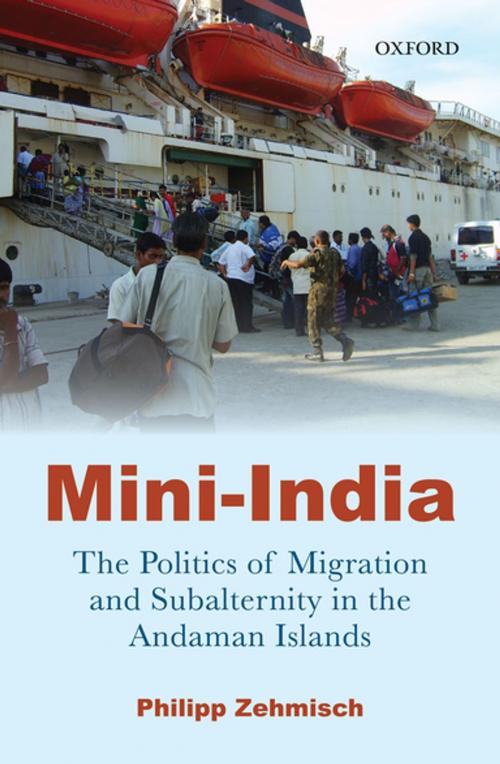Mini-India
The Politics of Migration and Subalternity in the Andaman Islands
Nonfiction, Social & Cultural Studies, Political Science, Government, Democracy, Social Science| Author: | Philipp Zehmisch | ISBN: | 9780199091294 |
| Publisher: | OUP India | Publication: | February 15, 2018 |
| Imprint: | OUP India | Language: | English |
| Author: | Philipp Zehmisch |
| ISBN: | 9780199091294 |
| Publisher: | OUP India |
| Publication: | February 15, 2018 |
| Imprint: | OUP India |
| Language: | English |
Often called ‘Mini-India’, the Andaman Islands have been a crucial site of encounter between different regimes, subjects, castes, creeds, languages, and ethnicities. Since 1858, subaltern convicts, refugees, repatriates, and labourers from South and Southeast Asia have moved to the islands, condemned to, or in search of a new life. While some migrants have achieved social mobility, others have remained disenfranchised and marginalized. This ethnographic study of the Andaman settler society analyses various shades of inequality that arise from migrant communities’ material and representational access to the state. The author employs the concept of subalternity to investigate political negotiations of island history, collective identity, ecological sustainability, and resource access. Interpreting characteristic views, practices, and voices of subaltern interlocutors, the author untangles their collective agency and consciousness in migration, settlement, and place-making processes. Further, the book highlights particular subaltern strategies in order to achieve autonomy and peaceful cohabitation through movement, cultural and social appropriation, and multi-layered methods of resistance.
Often called ‘Mini-India’, the Andaman Islands have been a crucial site of encounter between different regimes, subjects, castes, creeds, languages, and ethnicities. Since 1858, subaltern convicts, refugees, repatriates, and labourers from South and Southeast Asia have moved to the islands, condemned to, or in search of a new life. While some migrants have achieved social mobility, others have remained disenfranchised and marginalized. This ethnographic study of the Andaman settler society analyses various shades of inequality that arise from migrant communities’ material and representational access to the state. The author employs the concept of subalternity to investigate political negotiations of island history, collective identity, ecological sustainability, and resource access. Interpreting characteristic views, practices, and voices of subaltern interlocutors, the author untangles their collective agency and consciousness in migration, settlement, and place-making processes. Further, the book highlights particular subaltern strategies in order to achieve autonomy and peaceful cohabitation through movement, cultural and social appropriation, and multi-layered methods of resistance.















